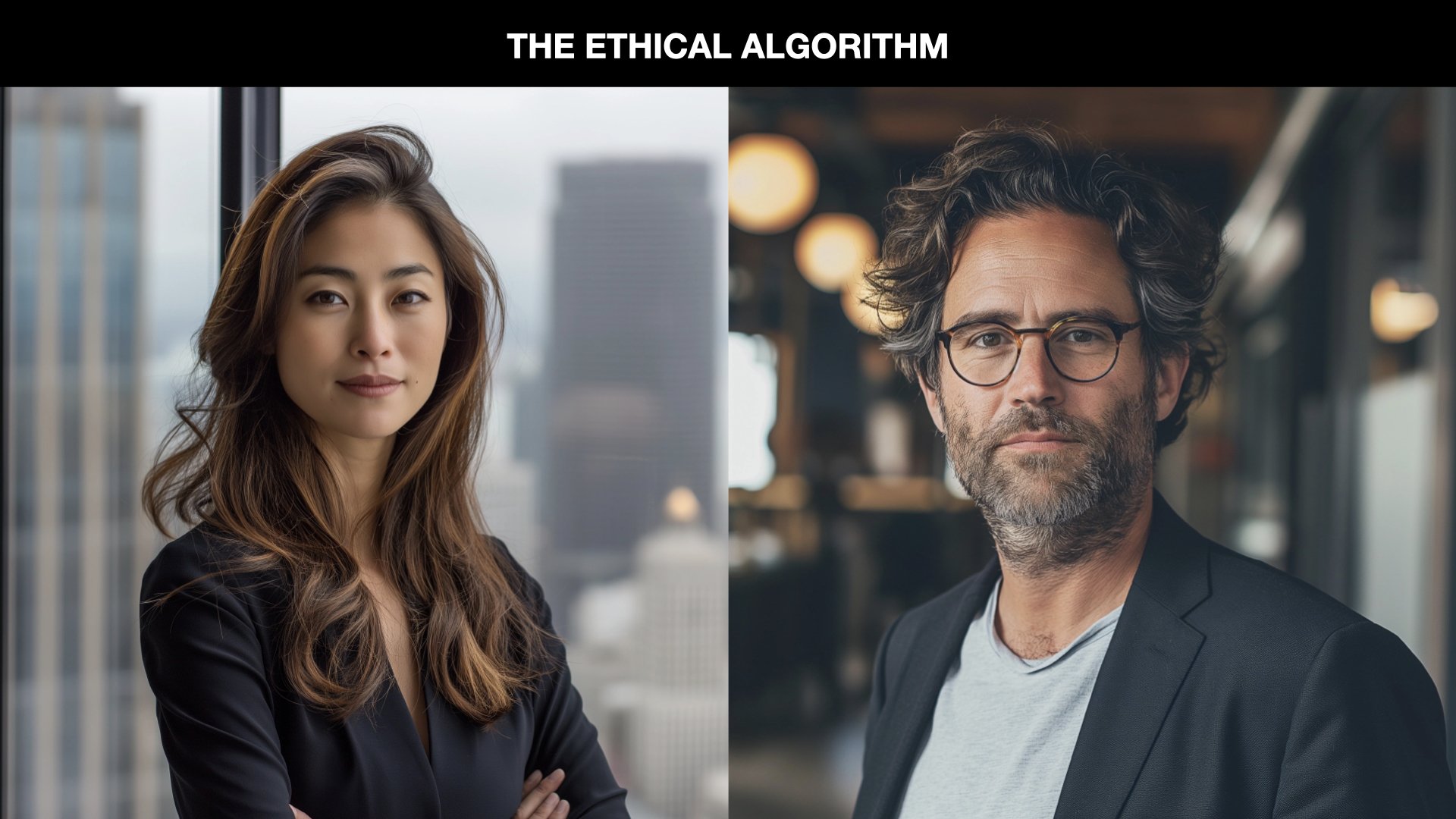A David Fincher-esque take on genAI in the creative industry
In the vibrant yet cutthroat advertising landscape of San Francisco, two agencies, Quantum Creative and Narrative Edge, embarked on markedly different paths with the advent of generative AI, setting a dramatic stage reminiscent of a David Fincher narrative—complete with tension, intrigue, and an enlightening twist.*
Quantum Creative, under the leadership of the astute and driven Marcus, swiftly embraced generative AI to revolutionize the production of advertising content. This approach quickly propelled Quantum to the industry's zenith, attracting a roster of elite clients with its promise of unparalleled efficiency and cost-effectiveness. However, the agency's meteoric rise was marred by a scandal when a high-profile campaign was revealed to have inadvertently plagiarized content, a consequence of its over-reliance on unchecked AI outputs. This incident not only threatened Quantum's existence with a crippling lawsuit but also sparked a broader industry debate on the ethical use of AI in creative processes.
Meanwhile, Narrative Edge, steered by the visionary Sofia, pursued a radically different use of generative AI. Sofia viewed AI not as a shortcut to productivity but as a tool to enhance human creativity, crafting unique and emotionally resonant advertising narratives. Despite the initial struggle to secure clients, who were swayed by Quantum's rapid and economical solutions, Sofia remained committed to her philosophy, believing in the long-term value of integrating AI ethically and creatively.
As Quantum faced its darkest hour, the industry braced for its fall, which many assumed would serve as a cautionary tale about the perils of misusing AI. However, in an unexpected turn of events, the lawsuit was settled almost mysteriously, allowing Quantum to narrowly avoid disaster. The source of this salvation was a closely guarded secret, sparking widespread speculation.
Simultaneously, Narrative Edge's fortunes began to change. A campaign designed for a niche market unexpectedly went viral, showcasing the agency's innovative approach and catapulting Sofia's team into the spotlight. As Narrative Edge's star rose, the industry's perspective on generative AI began to shift, with more agencies seeking to replicate Sofia's model of using AI to augment rather than replace human creativity.
The twist came when it was revealed that Sofia herself had anonymously funded the settlement of Quantum's lawsuit. Her intervention was driven by a deep conviction that letting Quantum collapse under the weight of its scandal would lead to an oversimplification of the complex issues surrounding AI in advertising. Sofia believed that the industry needed a wake-up call to the dangers of prioritizing efficiency over ethics but also recognized the importance of fostering a nuanced discussion on the role of AI—a discussion that could only happen if Quantum remained afloat.
Sofia's strategic decision forced Marcus and Quantum Creative to confront their approach head-on, catalyzing a period of introspection and transformation. It also turned the spotlight back on the importance of ethical considerations and the human element in the use of technology in creative fields.
In a climactic meeting, Marcus and Sofia discussed the future of advertising in the AI era, acknowledging their roles in shaping this future. They realized that their rivalry had given way to a mutual respect and a shared vision for an industry that leverages AI responsibly, enhancing creativity rather than compromising it.
This narrative arc, with its sophisticated interplay of ethical dilemmas, technological advancements, and human ingenuity, not only entertains but also imparts a profound lesson on the transformative power of technology when guided by visionary leadership and ethical stewardship.
*This entire narrative was written by generative AI, albeit with some human sparring and direction.

